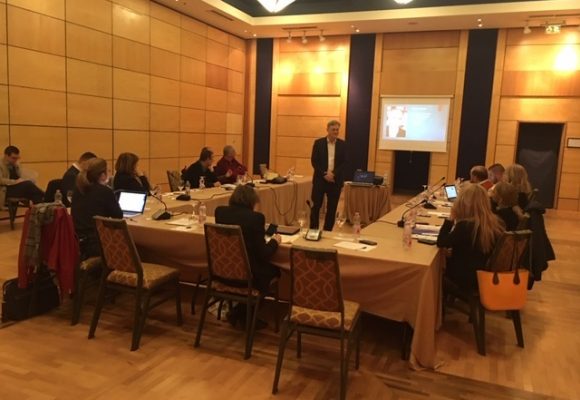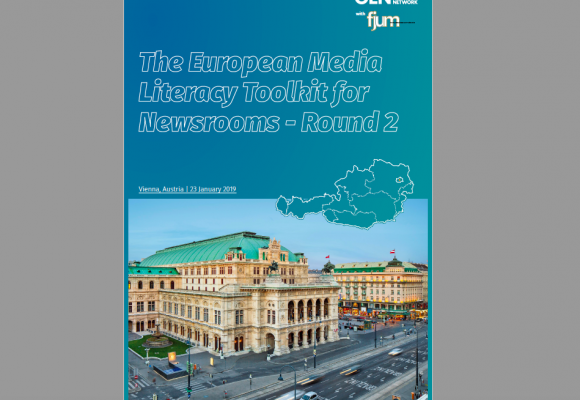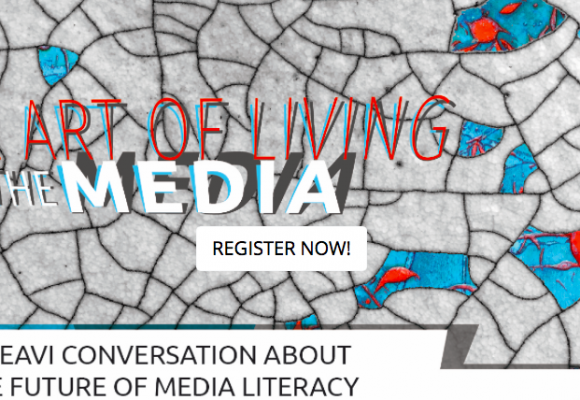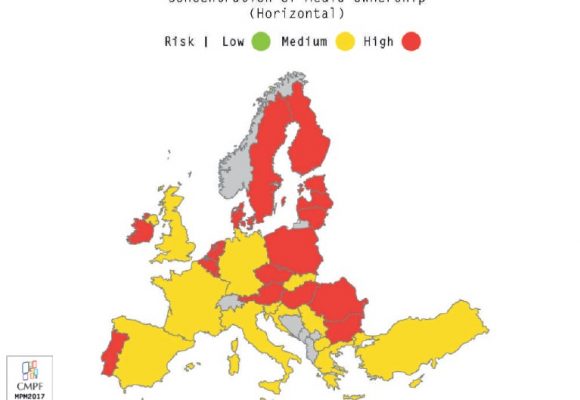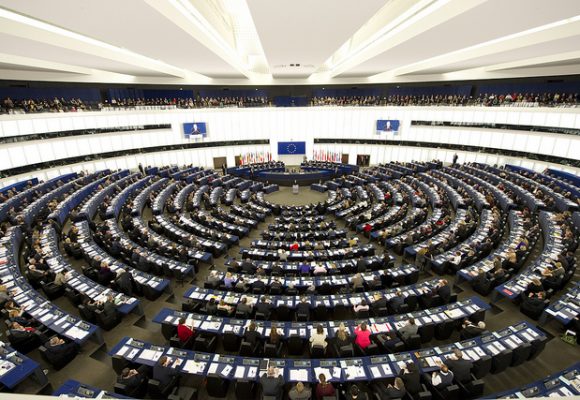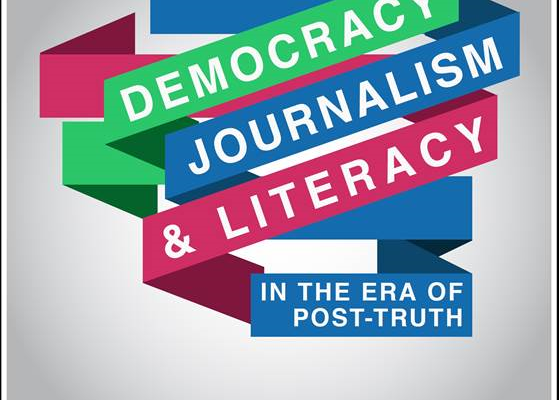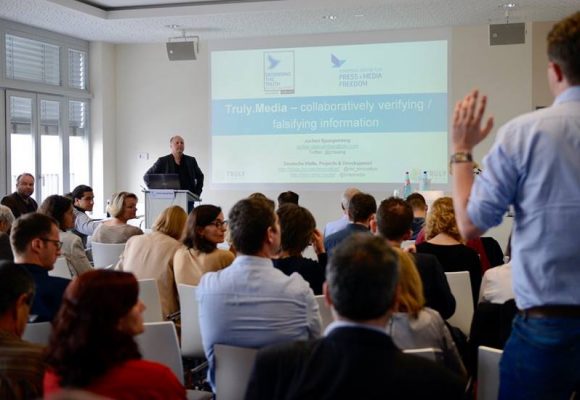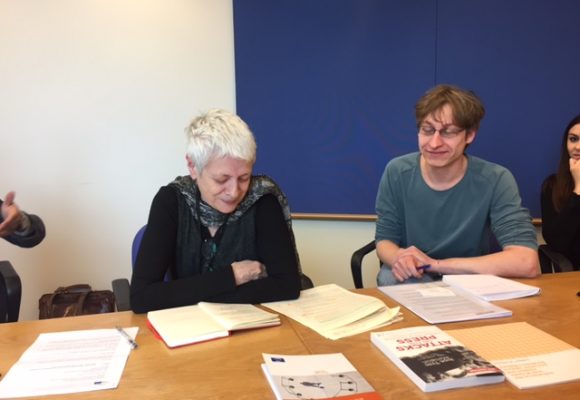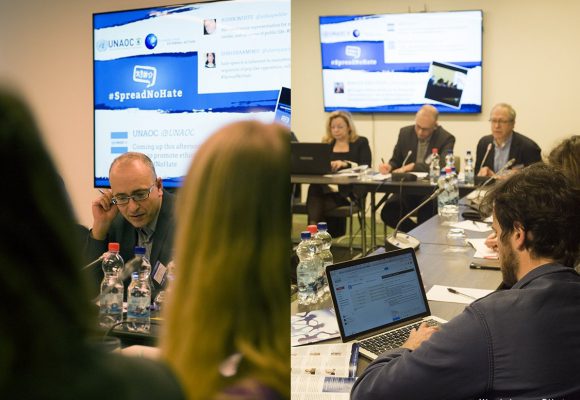#media literacy
Public service media in the Western Balkans – Ensuring complaint mechanisms and audience engagement
The regional workshop on developing complaint mechanisms and/or improving existing ones for Public Service Media in Western Balkans has started today, 21 February, in Tirana, Albania. The workshop brings together the program directors and editors-in-chief from the six PSM to discuss, examine and assess the role of complaint mechanisms with European experts in the field. What are the conditions for an effective complaint mechanism? How can complaint mechanisms improve relations with the audience and thereby trust and quality in psm? The importance of media literacy will be highlighted with examples from the region, as it is closely related to audience…
The European Media Literacy Toolkit for Newsrooms – Round 2
The Vienna-based Forum Journalism and Media (fjum) and the Global Editors Network have published today the second White Paper (PDF) following the Vienna Unconference on Media Literacy organised on 23 January 2019. The European Media Literacy Toolkit for Newsrooms: Combatting misinformation and disintermediation by restoring trust in journalism is supported by the European Federation of Journalists (EFJ). The paper covers quality journalism through innovative advanced training, orientation, and networking on an international level, and the support of participants’ experts to create tools to increase and support media literacy. It also describes the objectives of the intervention, summarises the content of the masterclass, details the dynamic of the…
Countering online disinformation towards a more transparent, credible and diverse digital media ecosystem
White Paper: the European media literacy toolkit for newsrooms – Round 1
The European Federation of Journalists (EFJ) and the Global Editors Network have today published their first White Paper (PDF) following the Brussels Unconference on Media Literacy organised on 6th of November 2018. The paper highlights the objectives of the intervention, summarize the content of the masterclass, details the dynamic of the process that let the participants decide on the themes and topics of the unconference, calls to action for the upcoming participants of next rounds and make main recommendations for the European Media Literacy Toolkit to be produced at the end of this exercice, shows the impact of the Brussels Unconference…
The art of living with the media
Is Europe more or less media literate? What does it mean to be a human being in the current digital era? Are citizens more distracted consumers and manipulated citizens? How to pay attention to online distractions and be in control of your own media use? Despite the opportunities that new technologies offer in terms of facilitating meaningful connection and proactive civil engagement, educational initiatives have been slow to catch up and policies even more so. In light of recent political and cultural events, media literacy is now coming to the fore. EAVI is well placed to discuss which skills are necessary to use the media as…
Risks for media pluralism and safety of journalists are increasing across Europe
The Media Pluralism Monitor (MPM) has examined 28 European Union Member States as well as three candidate countries: Turkey, Serbia and Macedonia. The results of this second EU-wide implementation of the MPM show either general stagnation or deterioration in all of the major areas encompassed by the MPM and confirm that no country analysed is free from risks to media pluralism. The Centre for Media Pluralism and Media Freedom (CMPF), based in Florence, has just published its 2017 Media Pluralism Monitor reports (#MPM2017). Year 2017 was marked by events that have had a significant impact on media freedom and media…
Parliament adopts revised EU Audiovisual Directive to ensure media independence
On 2 October, the European Parliament approved the revised Audiovisual Media Services Directive (AVMSD). The new rules aim to guarantee a fairer regulatory environment for the entire audiovisual sector. The European Federation of Journalists (EFJ) welcomed in particular the new requirement for Member States to have independent regulatory authorities for audiovisual media services. The Directive establishes a set of criteria that the regulator has to follow in ordered to be considered independent. First of all, it should be legally distinct from the government and functionally independent. Secondly, it should not take instructions from any other body in accomplishing its tasks.…
Council of Europe: new guidelines on media pluralism and transparency of media ownership
The Council of Europe has issued guidelines to its 47 member states in order to promote media pluralism, transparency of media ownership and media literacy. In a Recommendation adopted today, the Committee of Ministers endorses a comprehensive framework of guidelines for creating a pluralist, transparent and participatory media environment, both offline and online. States are encouraged to develop strategies for increasing the sustainability of a variety of media ranging from public service media, local, minority, community and cross-border media. States are also encouraged to support quality independent and investigative journalism, whilst fully respecting the editorial and operational autonomy of the…
Democracy, journalism and literacy discussed at the European Parliament
“Democracy, journalism and literacy in the era of post-truth” was the topic of a discussion at the European Parliament on 5 December 2017, held by the Centre for Media Pluralism and Media Freedom (CMPF), Media Literacy for Citizenship (EAVI), and Italian MEPs Barbara Spinelli and Curzio Maltese. Barbara Spinelli, the rapporteur of an own-initiative report on media freedom, referred in her analysis to the unprecedented level of self-censorship among journalists referring to the Council of Europe study”Journalist under pressure” . He report will among other deal with this, the urgent need for whistleblowers’ protection and how to tackle the effects…
‘Media (literacy) and Refugees’ events to discuss media role in representing migrants
The European Association of Viewers’ Interests (EAVI) and MyStory project have announced their ‘Media (Literacy) and Refugees’ event, taking place on 5 December 2017 at L42 Rue de la Loi. EAVI is a non-profit international organisation, working across Europe to promote media literacy. In the morning, a series of roundtable discussions will look at the way media shapes citizens’ perceptions of migrants and refugees. The discussions will highlight the success of grassroots organisations and their media initiatives, and touch on media literacy, journalism, civil society and fake news. The project Media Against Hate will be presented at this occasion. Registration here.…
Civil Society Media Seminar
The European Economic and Social Committee (EESC), will hold its 11th Civil Society Media Seminar on “The role of EU civil society in a globalised world of communications” from 23 to 24 November 2017 in Madrid. This event is principally directed to journalists and communications/press officers from civil society organisations representing employers, workers and other social, occupational, economic and cultural organisations. The EFJ will be represented by its GS, Ricardo Gutiérrez.
ECPMF conference on fake news: investment in quality journalism and media literacy needed
How to fight fake news? Do facts still matter? The European Centre for Press and Media Freedom (ECPMF) took part in this burning issue with the conference “Defending the truth in a post-truth era” taking place on June 13 and 14 in Leipzig, Germany. Many case studies were showcased by different NGOs and stakeholders highlighting the need to invest in media literacy, fact-checking trainings and collaborative journalism. LieDetectors is one of the project presented by Juliane von Reppert-Bismarck, aiming to bring journalists into classrooms in order to give them an overview of what a fake news is and to help children…
Meeting EP rapporteur Barbara Spinelli on media freedom
The European Federation of Journalists (EFJ) and press freedom groups met yesterday (11/05/2017) with Italian MEP Barbara Spinelli, Civil Liberties, Justice and Home Affairs (LIBE) Committee, who is the main rapporteur for an upcoming own initiative report on media freedom. Tom Gibson from the Committee to Protect Journalists, EFJ director Renate Schroeder, Giovanni Melogli from the International Alliance of Journalists and Julie Majerczak from Reporters Without Borders pointed out the importance of monitoring media freedom, solving the issue of self-censorship, strengthening media pluralism, boosting media literacy and finding more efficient law enforcement at European level when it comes to attacks…
#SpreadNoHate: how to tackle hate speech against migrants and refugees?
The European Federation of Journalists (EFJ) was invited on 26 January to participate in the high-level debate “#SpreadNoHate: Hate Speech Against Migrants and Refugees in the Media” organised in Brussels by the United Nations Alliance of Civilizations (UNAOC) and the European External Action Service (EEAS). This event was aimed to better understand the mechanisms of hate speech against migrants and refugees as well as exploring new ways to improve the quality of media coverage, by promoting ethical journalism and fostering dialogue between journalists, institutions and organisations. EFJ General secretary Ricardo Gutiérrez moderated the panel on “Strengthening Partnerships between Media and Civil…

